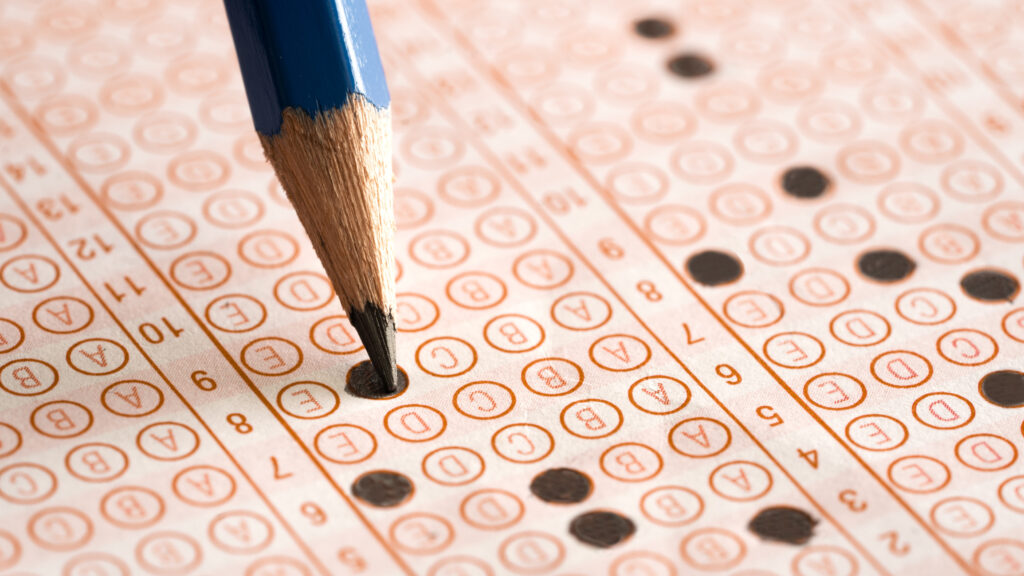A limited bill to introduce charter schools in Kentucky passed the state’s Senate, but failed in the House.
Kentucky has almost no school choice, unless families can afford private school tuition or higher property taxes in a school district they prefer. Senate Bill 176 was the “most successful to date” school choice bill, said Richard Innes, an education analyst at the Bluegrass Institute for Public Policy Solutions.
“Most of these bills, if they’re going to do something good for education, get blocked by the teachers union and the House,” Innes said.
The Need for Reform
Of the 18 low-performing schools in Louisville’s Jefferson County, 16 have shown almost no improvements in the last three years, despite re-staffing and other changes. Realistically, the schools’ only remaining options are to close or have the state take them over.
“We wanted to provide a third option to those schools, which would be charter schools,” said bill sponsor Sen. Mike Wilson (R-Bowling Green).
Under the bill, if 20 percent of a school’s staff signed a petition, they would vote, or if parents or guardians representing 20 percent of the students signed a petition, parents would vote. In either case, a two-thirds majority vote would be required to convert the public school into a charter school under supervision of the local school board. This would apply only to persistently low-achieving schools not already engaged in interventions to improve.
Only 41 schools—those in the lowest 5 percent, including the Jefferson County 18—would be eligible.
Such a charter school wouldn’t be subject to union contracts, and with a good principal and staff the school could more easily improve, Innes said.
“It’s quite restrictive, but it would have been a start in the right direction. We didn’t take that baby step, unfortunately,” Innes said.
The People vs. the System
Though citizens from Jefferson County have been lobbying for charter schools for years, Wilson said, most educators and superintendents oppose charter schools. Wilson said he spoke with several educators, who told him they were “fine with” the bill.
“We thought that the way the bill was written, that it would only apply to low-performing schools, we thought we might have a shot at being able to pass that, to provide an additional option for low-performing schools,” Wilson said. “I thought we’d taken care of a lot of the opposition.”
School choice has long been a difficult sell in Kentucky, Innes said.
“The teachers union is absolutely, vehemently opposed to it, and the teachers union owns the Kentucky House,” he said. “We’ve had charter school bills proposed before. They always died in the House.”
Kentuckians tend to be suspicious of anything resembling a privileged class structure, including schools, Innes said. Though charter schools are fully public schools, teachers unions attempt to paint them as private schools.
“Most of the charter schools are serving poor and inner-city kids around the country,” he said.
Charter schools receive public funding and must comply with basic state and federal regulations, but are free to choose curriculum, teaching staff, and structures such as the school day, in exchange for the prospect of closure if they fail students.
Family Involvement Key
It doesn’t make sense to give a choice to parents who aren’t involved in education anyway, said Jefferson County school board member David Jones Jr.
“I don’t view charters as particularly relevant to solving the root cause of JCPS’ lowest-achieving students,” he said in a statement.
He blames lack of parental involvement in education.
“Some parents are overwhelmed by poverty or homelessness; others can’t cope with the complexity of the system and are given the short straw,” he said. “Whatever the cause, our system collects the kids whose families don’t engage successfully with schools, disproportionately, in the lowest-performing schools.”
Without involved parents, students don’t complete homework and are often absent, he said. Unstable families mean students change schools frequently.
One of the main benefits charters offer is to engage parents by requiring them to pick their child’s school, Innes said.
The Jefferson County School Board has opposed charter schools for several years, said Ben Jackey, the district’s spokesman.
Image by Henry de Saussure Copeland.




